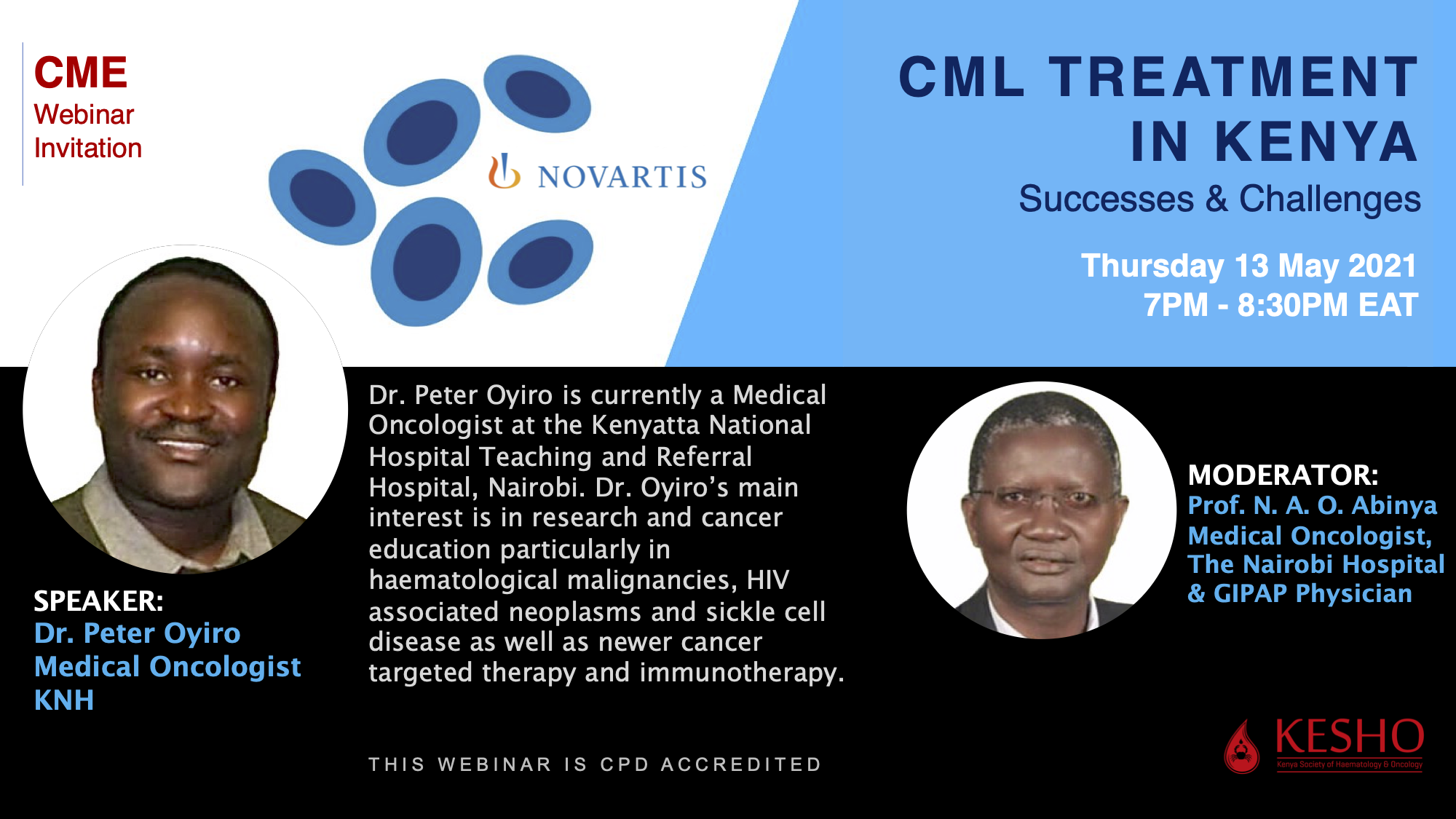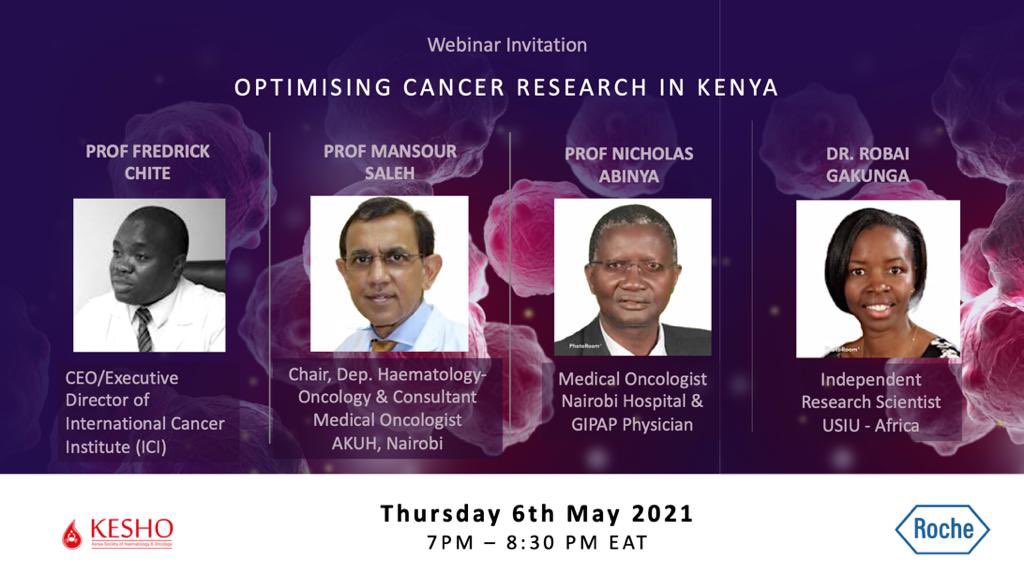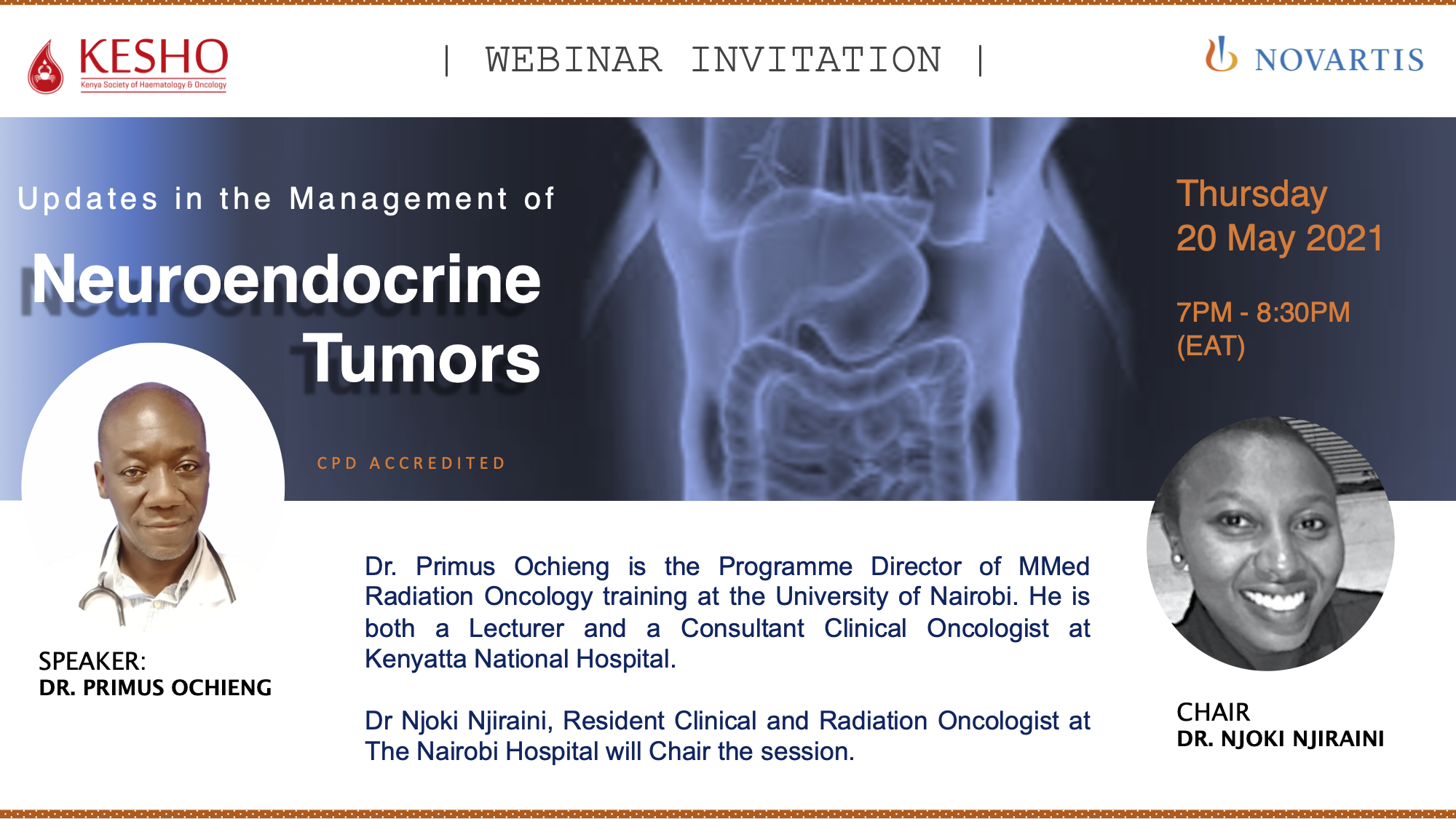
- This event has passed.
Chronic Myeloid Leukemia (CML) Treatment In Kenya
Event Navigation

Moderator: Prof. N. A. O. Abinya, Medical Oncologist, the Nairobi Hospital and GIPAP Physician
Sponsor: Novartis
Presenters:
- Dr. Peter Oyiro, Medical Oncologist Kenyatta National Hospital Teaching and Referral Hospital
Chronic Myeloid leukemia is a cancer of bone marrow stem cells. The only known risk factors are radiation from nuclear reactors, with no evidence of heredity risk factors. It is characterized by a translocation between chromosomes 9 and 22, which results in an abnormal juxtaposition of two genes, bcr, and abl. It accounts for 15% of all leukemia cases and has an annual incidence of 1.5 cases per 100000 individuals. The median age at diagnosis is 55-65 years, with a median survival of 3-7 years. The clinical presentation is usually massive splenomegaly, where the disease has three phases: chronic, accelerated, and blast. Most patients are diagnosed in the chronic phase, often without symptoms. If untreated, all patients progress to the accelerated/blast phase within 3-5 years. Diagnosis is by physical examination of the spleen and liver size, complete blood cell count, bone marrow aspirate for cytological examination and cytogenetic, fluorescence in-situ hybridization, reverse transcriptase-polymerase chain reaction (RT-qPCR). Late referrals, inadequate infrastructure, and trained physicians are major challenges to diagnosis. The life expectancy of newly diagnosed patients with CML in the chronic phase is now very close to age-matched individuals in the general population of Western countries. In resource-constrained countries e.g. Kenya, the goal of treatment remains survival. The Glivec International Patient Assistance Program (GIPAP) is an international drug donation program established by Novartis Pharma AG and implemented in partnership with the Max Foundation. It has provided imatinib to eligible patients in Kenya since 2002, at the Nairobi and the Aga Khan Hospitals for free. Patients with CML diagnosis can be referred to the GIPAP. Before imatinib was approved (FDA 2001), most patients were being treated with supportive care, hydroxyurea, interferon, and allogeneic hematopoietic cell transplantation (“bone marrow transplant”). Today, CML management in Kenya is mainly based on imatinib. Those failing therapies are put on second and third-generation TKIs. It’s important to check on kinase mutations that confer resistance to kinase inhibitors. Patients resistant or intolerant to imatinib can be treated with nilotinib. The main goal of treatment is to reduce the leukemic burden and the risk of progression to AP or BC. However, if the warning signs are not recognized early, treatment can be either a success or a failure. Molecular responses such as MMR are associated with improved survival outcomes. The major challenge with treatment is the unavailability of some drugs and high prices. Due to the COVID-19 pandemic, there is a switch from physical to virtual review of files. The pandemic has greatly affected adherence and compliance to treatment.
Webinar Recording

